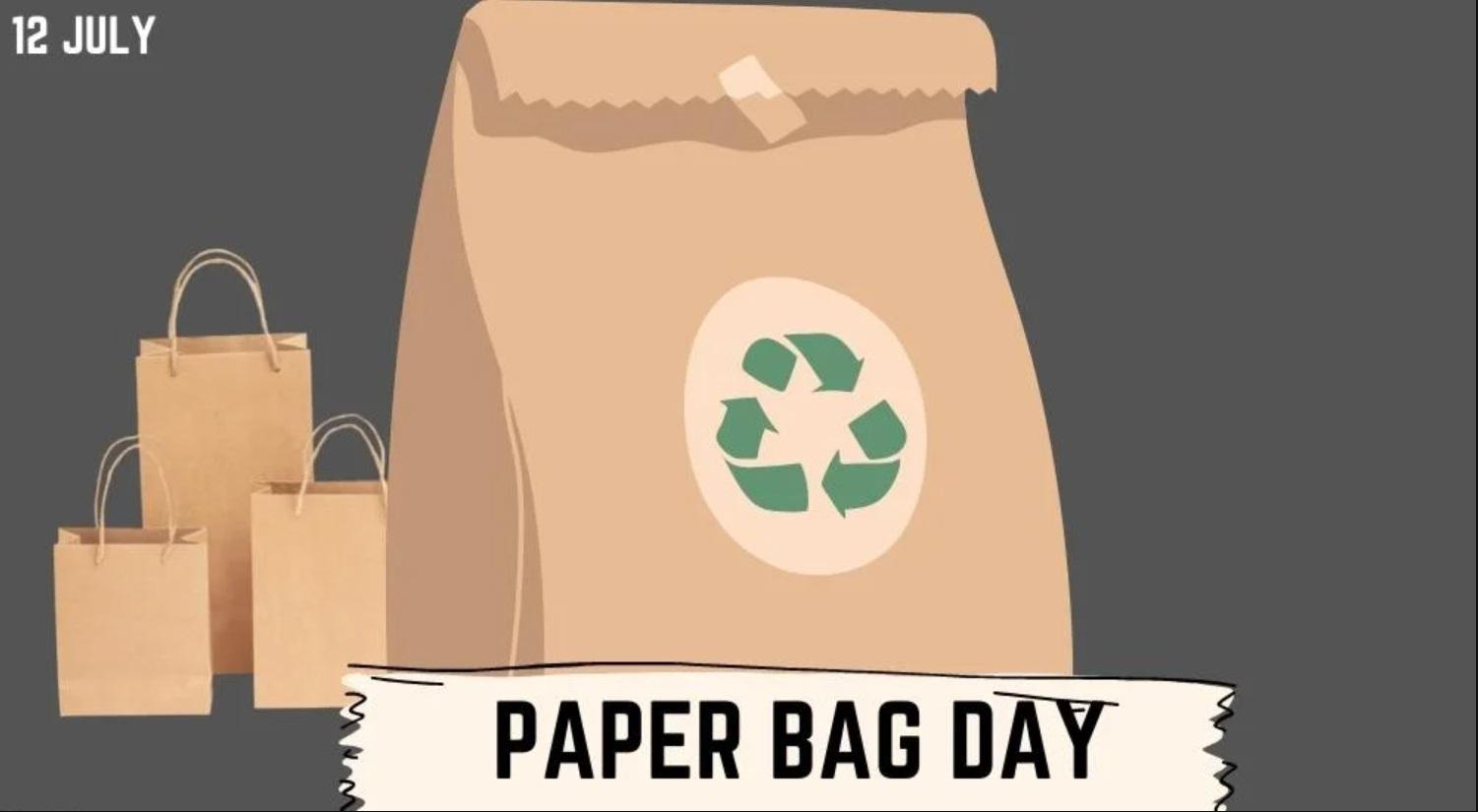Every year on July 12, the world celebrates Paper Bag Day — a reminder of how small daily choices can lead to a cleaner, greener planet. As plastic pollution chokes oceans, litters streets, and endangers wildlife, paper bags offer a sustainable and biodegradable alternative for carrying goods.
Paper Bag Day encourages eco-friendly habits and spreads awareness about the harmful effects of single-use plastics — making it not just a celebration of a simple product, but a movement toward environmental responsibility.
🛍️ Why Are Paper Bags Important?
Paper bags are more than a shopping accessory — they are a symbol of change:
-
Made from renewable resources like trees and recycled paper
-
Biodegradable and compostable
-
Easily recyclable
-
Decompose in weeks instead of hundreds of years
-
Safer for animals and marine life
-
Encourage zero-waste and plastic-free lifestyles
They show how we can replace harmful habits with sustainable solutions.
🧪 The Problem with Plastic Bags
Plastic bags may seem convenient, but they cause long-term environmental damage:
-
Take hundreds of years to decompose
-
Clog drains, leading to urban flooding
-
Kill marine animals that mistake them for food
-
Break down into microplastics that enter the food chain
-
Release harmful chemicals when burned
-
Fill up landfills and pollute landscapes
Every plastic bag avoided is one step closer to a cleaner Earth.
📜 A Brief History of Paper Bags
-
1852: Francis Wolle invented the first paper bag machine in the U.S.
-
1871: Margaret Knight created a machine for square-bottom paper bags.
-
20th century: Paper bags were widely used until plastic became popular in the 1970s.
-
Today: With rising environmental concerns, the world is re-embracing paper bags as a smarter choice.
🌱 Paper Bags and Sustainability
When sourced responsibly, paper bags can be part of a circular economy:
-
Made from FSC-certified (Forest Stewardship Council) or recycled paper
-
Reused multiple times for groceries, gifts, or crafts
-
Recycled or composted to reduce landfill waste
-
Help reduce dependence on fossil fuels used to make plastic
Eco-tip: Always reuse your paper bags and avoid wasting even biodegradable products.
🏫 How Schools and Students Can Celebrate Paper Bag Day
Paper Bag Day is a great opportunity to involve students in creative, educational, and impactful activities:
📚 Educational Activities:
-
Host a “Say No to Plastic” talk or quiz
-
Screen a short documentary on plastic pollution
-
Invite an environmental expert to speak on sustainable living
🎨 Creative Activities:
-
Design and decorate paper bags with green messages
-
Organize a poster-making contest
-
Conduct a fashion show using paper and recycled items
🛍️ Action Projects:
-
Run a “Bring Your Own Bag” campaign
-
Distribute handmade paper bags in the local market
-
Collect plastic bags for recycling and pledge to switch
🪴 Can Paper Bags Be Even Greener?
Yes — innovations are making paper bags more durable, water-resistant, and planet-friendly:
-
Seed paper bags – Plant them to grow flowers or herbs
-
Recycled newspaper bags – Use waste creatively
-
Cloth-lined paper bags – Add strength without plastic
-
DIY bags – Make your own using old books, maps, or calendars
These ideas show how sustainability meets creativity.
🔁 Tips for Responsible Paper Bag Use
-
Reuse paper bags several times before recycling
-
Store them safely to prevent tears
-
Refuse unnecessary packaging when shopping
-
Prefer recycled paper over virgin paper bags
-
Combine with cloth or jute bags for heavier loads
Remember: The most eco-friendly bag is the one you reuse.
🌍 Conclusion: Carrying the Future Responsibly
Paper Bag Day is not about switching from one disposable item to another — it’s about rethinking our habits. It reminds us that every bag we carry carries a message — of care, conservation, and conscious living.
🛍️🌱 So this July 12, let’s choose bags that don’t harm the planet. Let’s say goodbye to plastic, and hello to a future where every small act makes a big difference. Because change doesn’t always come in giant leaps — sometimes, it’s as simple as carrying the right bag.

